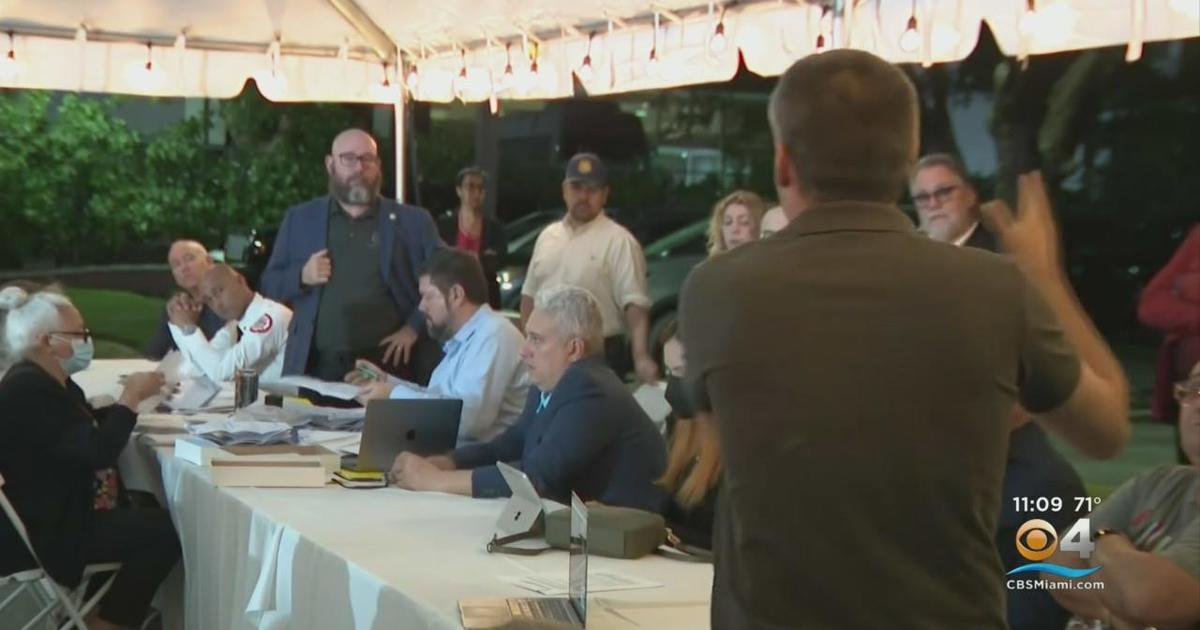Joe Carollo lawsuit may prove costly to taxpayers, political career
Now that a federal jury has ordered Miami Commissioner Joe Carollo to pay $63.5 million in a civil rights lawsuit, two questions hang following the stunning court decision: Will Miami taxpayers have to pay the money owed the plaintiffs and what comes next for Carollo?
Taxpayers are already — contentiously — on the hook for $2 million for Carollo’s legal representation in the case, despite it being brought against him as an individual and not in his capacity as a city commissioner.
Carollo’s political future also appears uncertain. Gov. Ron DeSantis could remove him from office in the aftermath of the federal jury’s decision.
More legal woes lie ahead for the Miami City Hall veteran. A federal lawsuit by the same plaintiffs raising similar allegations has been filed against him and the city. There’s also a possible state attorney investigation or potential ballot initiative to remove him from office.
On Thursday, the jury in Broward found Carollo liable for violating the First Amendment rights of Little Havana business owners William Fuller and Martin Pinilla, after their attorneys argued that he used city power to harass them and their properties. He was ordered to pay $63.5 million to both plaintiffs in compensatory and punitive damages, Carollo’s attorneys indicated he would appeal.
Since Carollo’s defense was that he was acting in an official capacity, City Attorney Victoria Méndez had determined that taxpayers should pay for his defense. The federal jury rejected that argument, finding that his alleged actions far exceeded the scope of a commissioner’s official duties.
Although neither Carollo’s legal team nor Méndez would comment on whether the city would pick up the tab for the judgment, the latter suggested that the city would continue to pay for the commissioner’s legal representation.
“An appeal is part of the full legal representation allowed by statute,” wrote Méndez in an email, citing Florida law.
That same law, however, stresses that a city can recover legal costs from any public official found to be liable for damages while “acting outside the scope of his or her employment” or acting “in bad faith.” In such cases, the law says Florida taxpayers should not foot the bill to defend the official.
READ MORE: Joe Carollo found liable: ordered to pay $63 million in federal ‘harassment’ case
Commissioners seek clarity over payments
Carollo’s fellow city commissioners told WLRN they are seeking clarity — but at least one is already expressing concerns about the city paying damages.
Miami Commissioner Manolo Reyes said he is “very worried” about what the verdict means for taxpayers in the City of Miami. “The city attorney has given us a crisis — where are the funds coming from?” asked Reyes. “This is a crisis.”
Reyes said it is unclear if the city should continue paying for Carollo’s legal expenses.
“We have to analyze who is going to pay for what, but until we do the analysis we don’t know,” said Reyes. “For the appeal, it looks like the city is going to continue paying, and I am not in favor of that. But we need to determine if there is a precedent from past cases with the city on appeals of how to proceed here.”
In a statement, Miami Commissioner Sabina Covo said the verdict “raises many questions.”
“I look forward to receiving a detailed briefing by the city attorney and city manager on impacts and implications to our taxpayers,” she said. “The judicial process has rightfully done their important work and it’s incumbent on the city to ensure we restore full confidence of residents that their city hall is always putting them first.”

Matias J. Ocner
/
Miami Herald
Miami Commissioner Alex Diaz de la Portilla, a staunch Carollo ally, was defiant of the jury’s verdict, calling it “a miscarriage of Justice that the 11th Circuit Court of Appeals will without a doubt correct.”
As far as the potential cost to city residents for the planned appeal, De La Portilla added by text message: “I am always for justice being served at any cost.”
A spokesperson for Miami Commissioner Christine King did not immediately respond for comment.
In the federal civil rights trial that ended Thursday, Jurors were not provided any evidence as to Carollo’s net worth or income before rendering a verdict. As a commissioner, Carollo receives a city salary of about $58,000. It’s unclear what other income he may have outside his work as an elected official.
One of Carollo’s most visible assets is his property in Coconut Grove, which is currently assessed at approximately $1,493,000 according to the Miami-Dade County property appraiser.
Carollo’s political future
A trial date has yet to be scheduled for a second federal lawsuit filed by Mad Room Hospitality, which represents businesses including the Ball & Chain bar, which is co-owned by Fuller and other partners. This lawsuit seeks to hold the city separately liable for the financial damages to their businesses. As Carollo awaits the trial, he’s facing multiple potential challenges as an elected official.
In 2020 a political committee called Take Back Our City attempted to recall him from office, largely in response to allegations that resulted in Thursday’s jury verdict. The move was rejected after a court determined that the collected signatures were submitted too late.
This week’s unanimous jury verdict vindicated the group’s original effort and may fuel another attempt to remove Carollo from office, said J.C. Planas, an attorney with the committee.
But any new move would likely take a different route, he said.
That’s because a federal lawsuit from the American Civil Liberties Union and other groups will likely force the city to redraw its districts, after the court found previous districts were drawn to benefit certain ethnic groups. In the potential new maps submitted by the ACLU, Carollo’s Coconut Grove home is not in his district.
If either of the maps stick, Planas said Carollo would be ineligible to remain in office because he would not live in his district. “It would probably be cheaper to sue to remove him from office for not living in the district instead of doing another recall,” Planas told WLRN.
Planas said the future for Carollo in politics is “bleak for him for the rest of his life,” and suggested that the fallout from the verdict could lead to a separate effort to dissolve the City of Miami. In 1997, on the back of a series of public scandals, a similar move made it onto the ballot but failed to get voter approval.
Meanwhile, under the Florida Constitution, the Governor can remove a municipal officer for “malfeasance, misfeasance, neglect of duty, habitual drunkenness, incompetence, or permanent inability to perform official duties.” The governor’s office did not respond to a request for comment from WLRN.
Carollo could also come under scrutiny of the Broward State Attorney’s Office. It has been digging into claims of corruption in the City of Miami since at least December of 2021. The investigation arose from a complaint from former Miami Police Chief Art Acevedo, alleging that a Miami city commissioner was directing city employees, including police, to target specific businesses with code violations — accusations similar to the ones Carollo faced in the federal trial.
Miami-Dade State Attorney Katherine Fernandez Rundle recused herself from any potential criminal investigation on Carollo to avoid any “conflict of interest or any appearance of impropriety.” A substantial witness to alleged wrongdoing in the investigation was related to an employee of her office.
In a statement to WLRN, the Broward State Attorney’s Office said it “would not comment on any open investigation” that it might or might not be working on.



